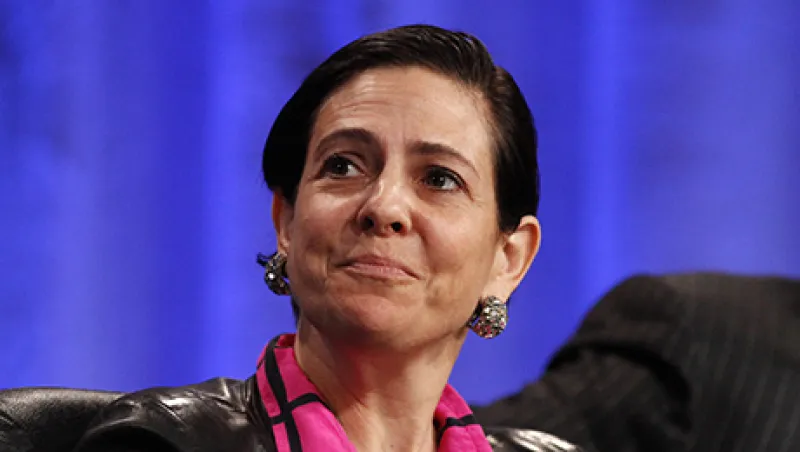Largely on the back of recessionary cost-cutting and Mad Men fandom, style in fashion and home decor has largely focused on the new retro. If recent trends in the wealth management industry are any indication, then, registered investment advisers are keeping in vogue.
In the wake of the credit crisis, a host of new boutique wealth management firms sprang up to capitalize on high-net-worth investors’ wariness of dealing with large financial institutions. As for why firms are opting for legacy brand names, much comes down to nostalgia. Many of these revived firms with vintage names were founded by industry veterans who emerged from investment brands whose names outlived the firms themselves. Some adopted historical names as they launched, notably Alexandra Lebenthal’s 2007 reacquisition of the brand name from Merrill Lynch of municipal bond franchise Lebenthal & Co., the firm her grandparents founded in 1925; and brokerage firm E.F. Hutton, which was reintroduced in 2011 as an registered investment adviser by Stanley Hutton Rumbough, the grandson of Edward Francis Hutton, who founded the firm in 1904, and alumni executives of the legacy firm.
As investment banking became more capital intensive during the 1990s, many firms with long-standing wealth management franchises felt compelled to merge with larger rivals. In 2007 Wachovia Corp. acquired A.G. Edwards, a St. Louis brokerage firm named for its founder, the assistant Treasury secretary under President Abraham Lincoln. On December 31, 2008, Wells Fargo took over Wachovia, in turn taking over what was once A.G. Edwards. Earlier in 2008 Tad Edwards, A.G. Edwards’s great-great-grandson, founded Benjamin F. Edwards & Co., a firm he intended to carry on the name of his family’s legacy and honor his father, who ran A.G. Edwards previous to its takeover. Benjamin F. Edwards is a St. Louis–headquartered hybrid RIA/brokerage firm completely independent of Wells Fargo. Its first branch office opened in 2009, in Springfield, Missouri.
According to Tad Edwards, the crisis itself was the catalyst for launching the new firm. “It presented us with a competitive opportunity,” he says. During the firm’s heyday, A.G. Edwards was noted for having a relaxed, entrepreneurial culture. “We had all the support we needed to take care of our clients’ needs; the firm understood what its people in the field needed,” says David Davies, a former A.G. Edwards adviser. “It was a friendly, fun environment.” In January, Davies left RBC Wealth Management to rejoin some of his colleagues at Benjamin F. Edwards — one of the many former A.G. Edwards advisers to sign back on since the move to reboot the brand independent of Wells Fargo.
Whereas many of the new businesses operating under historical names have clear links with the legacy firm, there are some exceptions. Among them is White, Weld & Co. Before Merrill Lynch acquired the firm in 1978, White, Weld was an investment bank and wealth management company dating back to the 19th century and ensconced in Boston’s upper crust. In 2012 a group of financial professionals who had never worked for the firm resurrected the name for a new financial services firm in midtown Manhattan.
“I am an avid fan of Wall Street’s history,” says White, Weld president and CEO James Fellus. “We adopted the name in large part because we wanted our firm’s culture to reflect the traditional Wall Street partnership model that fell by the wayside.” According to Fellus, the traditional partnerships of yesteryear kept firms better aligned with clients and allowed different divisions within the company to work more closely together.
The new White, Weld has opened six branch offices and is actively recruiting both senior wealth management and investment banking professionals. Like Benjamin F. Edwards, the firm has a dual RIA/broker-dealer structure. The firm’s strategy is to focus banking on smaller, high-quality deal flow to complement the wealth management process. In addition to Fellus, founding partners at White, Weld include Alan Gordon, CEO of private equity firm Richland, Gordon & Co. and of asset management firm Alda Capital; and Daniel Zwirn, former CEO of hedge fund firm D.B. Zwirn & Co., which closed in 2008 after significant client redemptions but has since successfully relaunched with a new fund.
Ultimately, the franchise value conferred by a historical name may be slight. According to Ryan Shanks, founder and CEO of Finetooth Consulting, a Longmeadow, Massachusetts–based marketing and business practice consulting firm focused on the wealth management industry, “It may help recruit older professionals with a brand loyalty, but it likely won’t mean a lot to existing and prospective customers.”
Get more on registered investment advisers.





